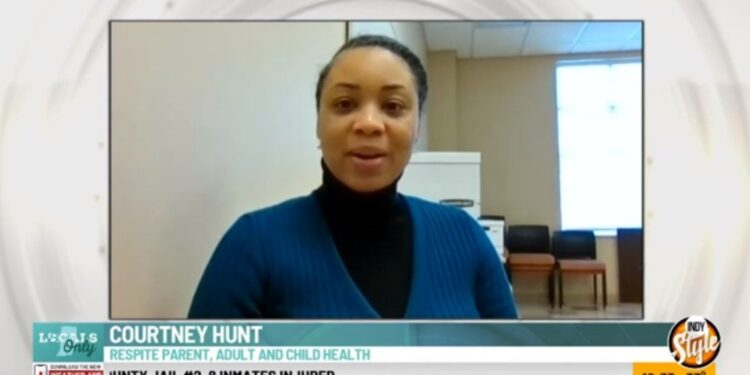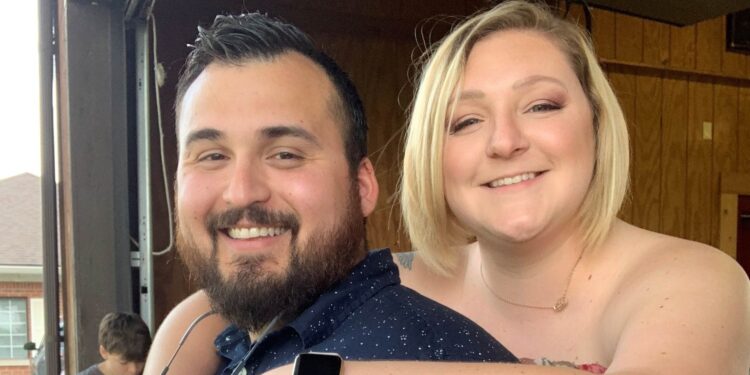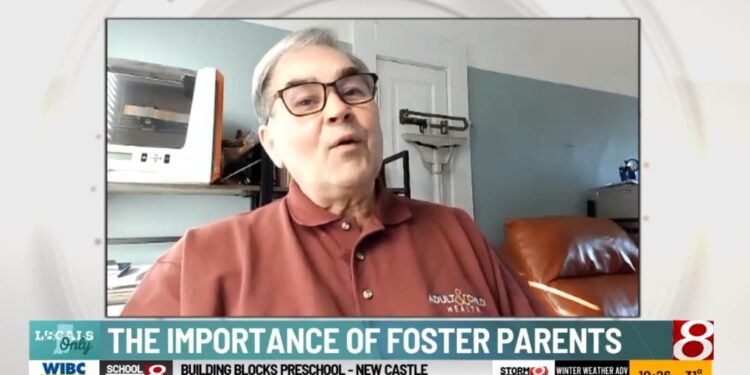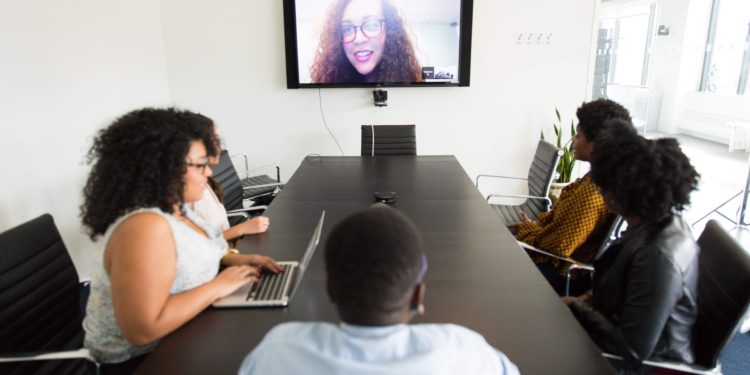Fostering Kids Full-Time Isn’t An Option? Consider Becoming A Respite Parent

Courtney Hunt didn’t begin fostering kids the way most foster parents do. She saw how things worked from the administrative side, and the good she witnessed prompted her to offer her own help. Hunt used to be a case manager for the Indiana Department of Child Services (DCS). “It was during that experience that I saw the need for foster homes,” she said. “Being a family case manager, I was fairly familiar with all of the contractors that were out here. A close friend was in charge of all the LCPAs (Licensed Child Placing Agencies) and she listed three agencies weren’t in hot water with her, and Adult & Child Health was one.” Courtney is a respite parent, which means she isn’t fostering kids in her home for extended periods, as most foster parents do. She watches foster children when their full-time foster parents need a date night or have another reason to take a break. Through A&C’s Therapeutic Foster Care program, foster parents are allowed one paid “respite day” each month. “Anytime they need a break or they need a date night, or oftentimes when the child is recently removed and DCS is in search of placement, we provide that temporary home for the children until a more permanent home can be found in the foster care agency,” Courtney said. What is a Respite Parent? Courtney has been a respite parent with A&C for four years, and some times of the year are busier than others. She said she had three requests from foster parents on Valentine’s Day, as an example. Watch Courtney’s interview on the topic with WISH-TV (Channel 8) below. Why Fostering Kids is So Rewarding Courtney said the most rewarding aspect of fostering kids is the connections she’s made, even though she doesn’t spend as much time with the kids as a full-time foster parent would. “Just seeing the young ladies that have come through my home has been rewarding,” Hunt said. “I’ve been able to maintain some good connections with them. One of them invited me to her open house when she graduated from high school.” Courtney suggests anyone who’s thinking of fostering should consider the positive impact they could have on a child’s life. “Know that you have special gifts and talents that you’re able to offer to these young people,” she said. “Parenting a child with trauma is different than parenting your own child. A&C is supportive, so don’t be afraid of it. Take time to determine what type of children you want in your home. Be honest with yourself about what you can do.”
A&C Foster Care Parents Share Their Experience, Advice On Fostering Children

A breast cancer diagnosis is usually a nightmarish scenario for anyone. It doesn’t usually motivate them to begin fostering children. Megan Mendez received the bad news three years ago. She and her husband, Jorge, turned that negative into a positive. Why? Here’s their story, in their own words. Jorge and Megan share their story on fostering children “I have had breast cancer twice, and we always had talked about having multiple children. We had our one (biological) daughter and I used to (work in) home health, so I worked with a lot of foster families. That’s how I found out about A&C. The two of us talked about it & decided to go for it. “We have two foster boys age 2 and 1,siblings, and we’re in the process of hopefully adopting soon. We got the 2-year-old when he was 6 months old. He had just turned 2 & found out his birth mother had another baby. We have a set of siblings we had for 2 years. An older set of siblings (ages 9 and 6) were the first two foster kids we got. They went home because of COVID, but are back in the foster care system as of August, and we’re trying to get back in our home. We also have an 11-year-old biological daughter.” Watch Jorge and Megan Mendez share their story on WISH-TV: What you should know “The most rewarding aspect of fostering children is the happiness you see in the kids’ face, and just knowing that if they weren’t there, I think about where would they be. It makes me feel good to know it doesn’t matter, they’re here now. “I see in the Facebook group I’m in that people want to give up. Push through the hard times, and there are great times. The hardest part is getting kids adjusted to your routine, then visits come into play and it messes up the routine. It’s definitely a rewarding thing to do and it’s definitely something your heart has to be in.” “The biggest misconception about fostering children is how hard it is to see the kids going home to their biological families. A lot of people say that’s the hardest thing, that it’s hard to see them leave, but in our two situations, there was a rewarding thing to see their dad step up. A lot of people talked about dealing with biological families. “We’ve had rough times and good times with that; everyone just has to be willing to have those good moments. You just have to know when to step away.” How fostering children affects your birth children “Our biological daughter doesn’t hide her feelings very well at all. She had her troubles when the foster kids first came, but when we told her about them coming back, she was explaining it to someone else and said, “My sister’s coming back,” so there was definitely a bond. “I know our daughter missed them since they left. She’s obsessed with the boys. It’s hard for us to say they’re foster kids at this point. They’re our sons.” Watch Jorge and Megan talk about fostering during the holidays.
Fostering 100 Children Over 16 Years? Tom Gaunt Shares His Story.

Adult & Child Health Board of Directors Chair Tom Gaunt knows as well as anyone the positive effect fostering can have on a child’s life. He’s been a foster parent to over 100 children over a 16-year period. That includes a sibling group of nine that Tom and his wife, Jeanne, adopted together as a way to keep the children together. Tom appeared Jan. 25 on WISH-TV (Channel 8)’s Indy Style show, which features lifestyle and local topics, to talk about his experience as a foster parent, the need for more parents and Adult & Child Health’s role. Here’s an excerpt of what he shared: Adult & Child Health Board Chair Tom Gaunt with his wife Jeanne and nine of the siblings they adopted through fostering. How did you become associated with A&C? “I was a foster parent, and my foster children and adoptive children were being seen by Adult & Child long before I became a board member. “Foster care was such a priority for Adult & Child that they asked me to become a board member to make sure the program had a voice at the board level.” What made you decide to do this? “My wife’s father was a foster child, and so after we married, we decided to be foster parents in honor of her father. “It’s about helping kids. We’re no better than the children we bring up into this world. There’s over 400,000 children waiting to have foster parents, including 9,000 here in Indiana. Foster parents are unsung heroes.” What’s a bad reason to become a foster parent? “If you’re looking to fulfill something in your life, it’s probably the wrong motivation. The loss of a child, and you’re looking at maybe taking foster children to replace that loss … maybe it’ll make your marriage better if it’s not doing so well … those would be the wrong reasons. “The right reason to become a foster parent is to help make a change in someone else’s life. We need good parents to extend what they know to make a difference in another child’s life.” Watch the WISH-TV interview below. Why is A&C an ideal foster care agency? “At the time we had nine foster children, all siblings, on the path to adoption, and as such, my frame of reference for today comes from the help my family received, and what made A&C’s Foster Care program special for us, and all the other foster families A&C serves. “The value of our agency to our foster parents: A strong focus on community – meeting with other foster parents that understand and emphasize, ‘it takes one to know one.’” What does our program offer? Adult & Child Health’s Therapeutic Foster Care program provides parents with all the assistance they’ll need. From eligibility requirements to licensing to placement and more, we’re here for you. Here are few other benefits: Do you want to learn more about becoming a foster parent? Email us or call 1-317-893-0207.
Learn More About Foster Care. Set Up A Virtual Meeting With Us On Your Schedule.

Virtual meetings have made life more convenient for everyone involved. Our Therapeutic Foster Care team utilizes them often, from trainings to meetings with foster parents. Sometimes, though, life gets in the way of those types of meetings, too. Schedules fill up. Emergencies happen. That’s why our team is offering virtual informational meetings via Zoom that fit your schedule. You pick the day and time, and we’ll meet you online. Our Therapeutic Foster Care team is offering informational virtual meetings for anyone who might be interested in becoming a foster parent. How our virtual meetings work If you’re interested in learning more about becoming a foster parent, we offer informational meetings. But they don’t happen sporadically. They happen whenever you want them to happen, and the 1-on-1 environment allows prospective parents to ask more personal questions that might not be comfortable in a group setting. Trainings have historically been set up one time monthly, but this allows the foster care team to do an informational meeting for a shorter time commitment. Then, prospective foster parents can determine if they are ready to take the next step to begin the training process. “It allows me to individualize training when necessary,” said Lynn Farmer, Community Outreach Development Specialist. “For example, we still do pre-service trainings on Saturdays even virtually. However, occasionally Saturday doesn’t work around work schedules. Virtual training allows me to meet the prospective parent on their timeline.” The 30-minute informational sessions cover the basic requirements to become a foster parent, the required training, the placement process and more. Prospective parents can ask questions at the end of the meetings. Those advantages complement the convenience that virtual meetings provide. What parents are saying Here’s a sampling of what our current foster parents say about the 1-on-1 virtual meetings: “Less interruptions of the speaker.” “It allows you to still engage but at the convenience of your everyday life. I think that it is very beneficial with taking care of so many other things because it gives you more time for other stuff like 1-on-1 with kids.” “I have my own time to focus and really zone in to what I’m learning. I’m not worrying about the kids because I am home.” “Questions of others. Time for explanation.” “You still get the same information as if you were face to face.” “You’re more at ease when taking in information.” “Well, with the virus going around, I feel safe in my home.” How you can register for a virtual meeting Would you like to schedule your own 1-on-1 virtual meeting to learn more about becoming a foster parent? Call 317-893-0207 today. Once you’ve settled on a meeting date and time, we’ll send you a link via email to join the meeting.



